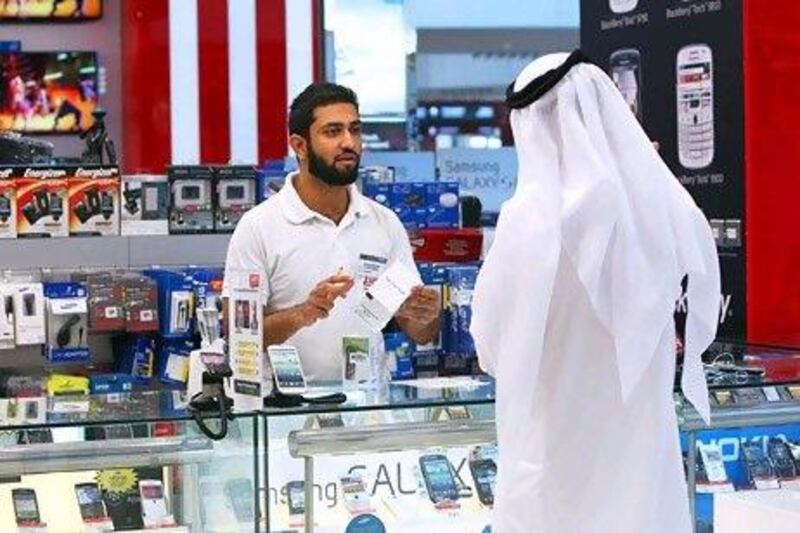The Arab world's most tech-savvy consumers are shunning e-commerce, with less than 20 per cent of younger buyers making regular purchases online.
Despite heavy use of social media in the region, there is a reluctance to buy goods online, according to a survey by the consultancy Booz & Company and Google.
About 38 per cent of respondents said they were worried about fake websites, while 26 per cent cited concerns over the delivery of goods.
This means that the world's US$680 billion (Dh2.49 trillion) e-commerce industry goes largely untapped in this region, according to the authors of the report. "Four out of five said they rarely do any transactions online," said Karim Sabbagh, a senior partner with Booz.
"This is the most tech-savvy generation that we have ever had. But they are not realising the full potential of what digital technology can offer today."
The survey, which Booz will present to the Abu Dhabi Media Summit today, found that 72 per cent of respondents based in the GCC rarely or never buy online, while 9 per cent said they made an internet transaction about once a month. Some 19 per cent said they engaged in e-commerce on a daily or weekly basis. Respondents in the Levant and North Africa were even less likely to make regular online purchases.
Estimates of the total size of the region's e-commerce industry vary greatly. According to the credit card company Visa, total sales within the GCC were on target to reach $5bn by the end of last year.
But the research firm Euromonitor estimates that people in the UAE, Saudi Arabia and Egypt spent just $1.01bn on internet retail sites last year.
That is just a fraction of the world's booming online retail industry. According to JPMorgan, global e-commerce revenues were forecast to grow to $680bn last year, an increase of 18.9 per cent on the previous year.
"It's a massive business. But ultimately we're not making the best use of what digital can do for our economies," said Mr Sabbagh.
"Policymakers and business leaders still have significant ground to cover in terms of making that experience more friendly or more secure."
Online retailers acknowledged that e-commerce uptake has been slow across the region as a whole. But they said the UAE, Qatar and Kuwait have high levels of e-commerce use.
"In the UAE, about 65 per cent of all internet users are buying online," said Ronaldo Mouchawar, the chief executive of Souq.com, one of the Arab world's most prominent online retailers.
"In Saudi Arabia it's trending upwards. We've seen about 15 per cent of internet users buying online. But when you go to Egypt, it's 9 or 10 per cent buying online, which is where the numbers get skewed." Ari Kesisoglu, the regional manager for Google in the Middle East and North Africa, said that technical issues of e-commerce are largely in place. But he added that public perceptions need to change.
"We have all the necessary ingredients in place now," he said. "It's a change in habit and change in habits take time."
The Arab Digital Generation survey by Booz and Google surveyed 3,000 internet users aged 15 to 35 in nine Arab countries.
About 83 per cent of the respondents said they use the internet daily, and 61 per cent spend more than two hours each day on social networks.
Despite the growing use of the internet in the Arab world, only 8 per cent of respondents said they use online platforms to connect with government or political leaders, the survey found.
"There is much more political awareness and political activity than the previous generation," said Mr Sabbagh. "They are expressing their views, but they are expressing their views between each other, rather than the leaders."





